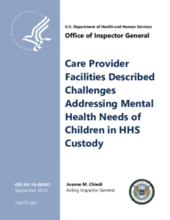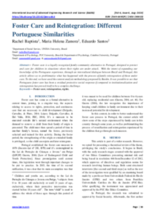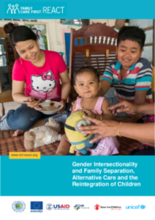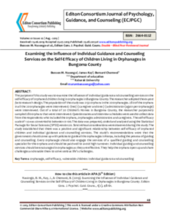Displaying 411 - 420 of 1510
This study had two aims: first, it sought to test whether Children and young persons (CYPs) who entered residential care with higher level-of-care (LoC) scores on the Child and Adolescent Needs and Strengths (CANS) tool, indicative of higher needs or more intensive services required, were more likely to experience a critical incident. Second, it aimed to test the various needs separately with the occurrence of critical incidents to delineate the impact of each individual need on critical incident.
Decades of research confirm that children and adolescents in out‐of‐home care (foster family, residential care) have much greater healthcare needs than their peers. A systematic literature review was conducted to evaluate organizational healthcare models for this vulnerable group.
Set in Central Region Ghana, using Country-Side Children’s Welfare Home (CCWH) as the main case study, this thesis investigates the underlying factors that are preventing families in the Bawjiase and surroundings from opening their homes and hearts to vulnerable children.
The authors of this review from the U.S. Office of Inspector General conducted qualitative analysis to identify the most significant challenges that facilities faced in addressing the mental health needs of children in the Office of Refugee Resettlement (ORR) custody.
This article examines the family reintegration process for those in care in Portugal and Brazil.
This study from Family Care First (FCF) and Responsive and Effective Child Welfare Systems Transformation (REACT) utilized a mixed method approach to data gathering and analysis to understand the effects of gender, identity, and institutional practices on the well-being of children in alternative care in Cambodia.
The goal of this paper was to review and critique the literature examining predictors of better-than-expected adjustment of children who have experienced institutional care.
The purpose of this study was to examine the influence of individual guidance and counselling services on the self-efficacy of orphaned children living in orphanages in Bungoma County, Kenya.
This study examined the effects of trauma-informed residential care and the relation between complex trauma (CT) and gender.
For this study, a general sample of the New South Wales (NSW) public completed an online survey about adoption practices and their willingness to consider adopting from out-of-home care, with background questions on perceived social support and life satisfaction.




